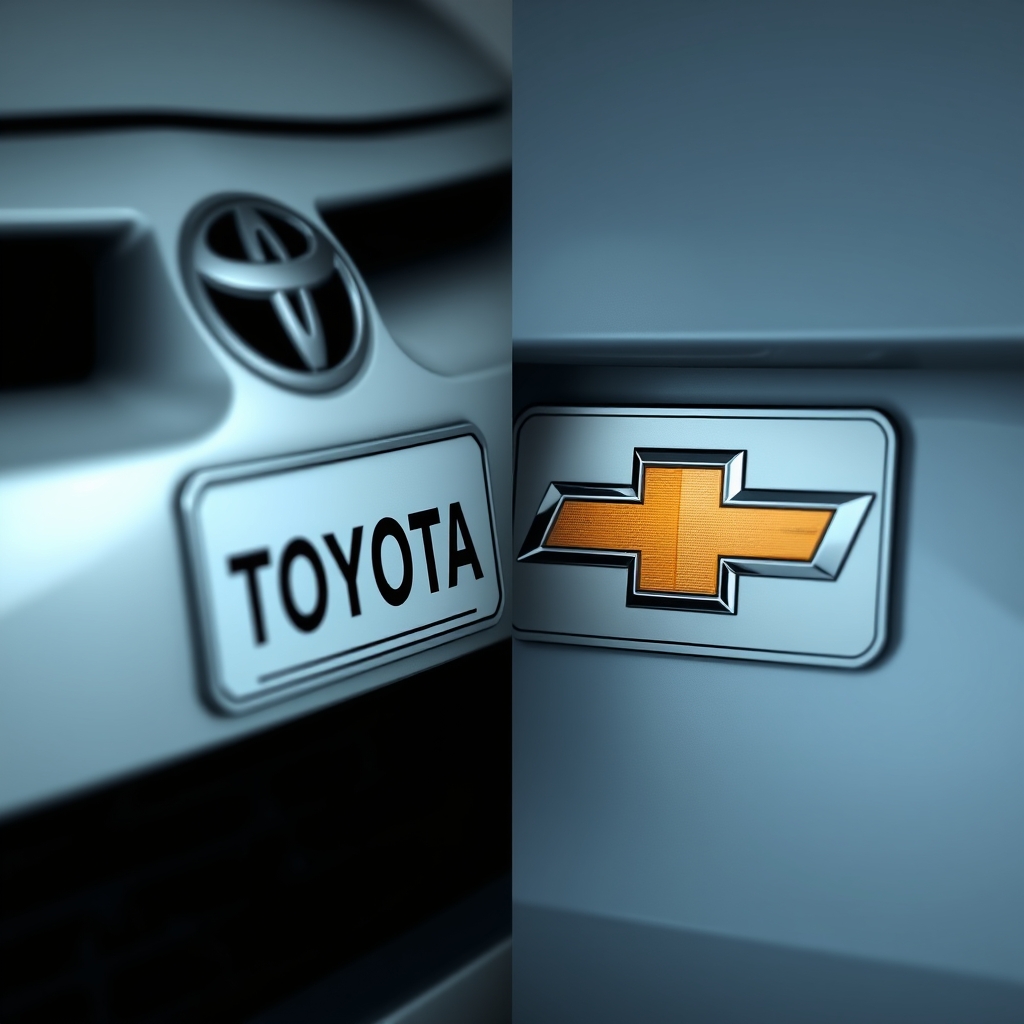Toyota VIN Decoder API vs Chevrolet VIN Decoder API: What to Choose?

When it comes to decoding Vehicle Identification Numbers (VINs), both the Toyota VIN Decoder API and the Chevrolet VIN Decoder API offer robust solutions for developers looking to extract detailed information about vehicles. This blog post will provide a comprehensive comparison of these two APIs, focusing on their features, performance, scalability, and use cases to help you determine which API is best suited for your needs.
Overview of Both APIs
The Toyota VIN Decoder API is designed to unlock a wealth of information embedded within Toyota vehicle identification numbers. It allows developers to integrate VIN decoding capabilities into their applications, providing insights into manufacturing details, technical specifications, recall information, and ownership history. This API is particularly useful for automotive marketplaces, dealership platforms, and service center applications.
On the other hand, the Chevrolet VIN Decoder API serves a similar purpose for Chevrolet vehicles, offering a comprehensive toolkit for decoding VINs. It provides access to manufacturing specifics, technical attributes, and historical data, enabling developers to explore engine configurations, recall information, and more. This API is also designed for seamless integration, enhancing user experiences by providing detailed insights into Chevrolet vehicles.
Feature Comparison
Toyota VIN Decoder API Features
The Toyota VIN Decoder API includes several key features:
Decode
This feature allows developers to pass a VIN number and receive detailed information about the vehicle. The response includes various fields such as manufacturer details, model year, engine type, and more.
{"VIN":"JTEBU14RX30013995","Manufacturer":"Toyota Motor Corp","Adress line 1":"1 Toyota-cho Toyota -Shi","Adress line 2":"471-8571 Aichi-Ken","Region":"Asia","Country":"Japan","Note":"Manufacturer builds more than 500 vehicles per year","Entered VIN":"JTEBU14RX30013995","Corrected VIN":"JTEBU14RX30013995","Squish VIN":"JTEBU14R30","WMI":"JTE","VIS identifier":"N/A","VDS":"BU14RX30","Year identifier":"3","Serial number":"013995","VIN type":"normal","Check digit":"valid","Make":"Toyota","Model":"4Runner","Model year":"2003","Body style":"4 Doors SUV","Engine type":"V6","Fuel type":"Gasoline","Transmission":"Automatic","Manufactured in":"Japan","Body type":"SUV","Number of doors":"4","Number of seats":"5","Displacement SI":"3998","Displacement CID":"244","Displacement Nominal":"4.0","Engine head":"DOHC","Engine valves":"24","Engine cylinders":"6","Engine aspiration":"Naturally","Compression ratio":"10.0","Engine HorsePower":"245","Engine KiloWatts":"183","Automatic gearbox":"4AT","MPG ci...The response fields provide a comprehensive overview of the vehicle's specifications, which can be utilized in applications to enhance user experience, such as displaying detailed vehicle information in marketplaces or assisting service centers in diagnostics.
VIN Decoder Lite
This feature requires the user to indicate a VIN in the parameter. It provides a more concise overview of the vehicle's basic details.
{"vin": "JTEBU14RX30013995", "country": "Japan", "manufacturer": "Toyota", "model": "4-Runner", "class": "Sport Utility Vehicle (SUV)/Multi-Purpose Vehicle (MPV)", "region": "Asia", "wmi": "JTE", "vds": "BU14RX", "vis": "30013995", "year": "2003"}This response includes essential information such as the country of manufacture, model, and year, making it useful for applications that require quick access to basic vehicle details.
Chevrolet VIN Decoder API Features
The Chevrolet VIN Decoder API also offers several key features:
Get Data
This feature allows developers to pass a VIN number and receive detailed data about the vehicle, similar to the Decode feature of the Toyota API.
{"VIN":"2G1WT58K669155776","Manufacturer":"General Motors of Canada Limited","Adress line 1":"1908 Colonel Sam Dr","Adress line 2":"Oshawa ON L1H 8P7","Region":"North America","Country":"Canada","Note":"Manufacturer builds more than 500 vehicles per year","Entered VIN":"2G1WT58K669155776","Corrected VIN":"2G1WT58K669155776","Squish VIN":"2G1WT58K69","WMI":"2G1","VIS identifier":"N/A","VDS":"WT58K669","Year identifier":"6","Serial number":"155776","VIN type":"normal","Check digit":"valid","Make":"Chevrolet","Model":"Impala","Model year":"2006","Body style":"4 Doors Sedan","Engine type":"V6","Fuel type":"Gasoline","Transmission":"Automatic","Manufactured in":"Canada","Body type":"Sedan","Number of doors":"4","Number of seats":"6","Displacement SI":"3507","Displacement CID":"214","Displacement Nominal":"3.5","Engine head":"OHV","Engine valves":"12","Engine cylinders":"6","Engine aspiration":"Naturally","Compression ratio":"9.8","Engine HorsePower":"211","Engine KiloWatts":"157","Automati...The response fields provide detailed manufacturing information, technical specifications, and recall history, which can be invaluable for applications that require in-depth vehicle analysis.
VIN Decoder Lite
Similar to the Toyota API, this feature requires the user to indicate a VIN in the parameter and provides a concise overview of the vehicle's basic details.
{"vin": "2G1WT58K669155776", "country": "Canada", "manufacturer": "Chevrolet", "model": "Impala", "class": "Sedan/Saloon", "region": "North America", "wmi": "2G1", "vds": "WT58K6", "vis": "69155776", "year": "2006"}This response includes essential information such as the country of manufacture, model, and year, making it useful for applications that require quick access to basic vehicle details.
Performance and Scalability Analysis
Both the Toyota VIN Decoder API and the Chevrolet VIN Decoder API are designed for high performance and scalability. They can handle multiple requests simultaneously, making them suitable for applications with high traffic. The APIs are built on RESTful architecture, ensuring that they are lightweight and efficient.
In terms of response times, both APIs are optimized for quick data retrieval, allowing developers to provide a seamless user experience. The Toyota API focuses on delivering comprehensive vehicle history, while the Chevrolet API emphasizes detailed manufacturing and technical specifications. Depending on the specific needs of your application, one API may perform better than the other in certain scenarios.
Pros and Cons of Each API
Toyota VIN Decoder API
Pros
- Comprehensive vehicle history and specifications.
- Easy integration with clear documentation.
- Robust security features for data protection.
Cons
- Limited to Toyota vehicles only.
- Some users may find the amount of data overwhelming.
Chevrolet VIN Decoder API
Pros
- Detailed manufacturing and technical specifications.
- Seamless integration with various applications.
- Reliable data sourced from official automotive databases.
Cons
- Limited to Chevrolet vehicles only.
- Less comprehensive historical data compared to Toyota API.
Final Recommendation
Choosing between the Toyota VIN Decoder API and the Chevrolet VIN Decoder API ultimately depends on your specific use case. If your application primarily deals with Toyota vehicles and requires detailed historical insights, the Toyota API is the better choice. Its comprehensive data can enhance user experiences in automotive marketplaces and service centers.
Conversely, if your focus is on Chevrolet vehicles and you need detailed manufacturing and technical specifications, the Chevrolet API is more suitable. Its reliable data and ease of integration make it an excellent option for applications that require in-depth analysis of Chevrolet vehicles.
In conclusion, both APIs offer valuable features and capabilities for developers looking to decode VINs. By understanding the strengths and weaknesses of each API, you can make an informed decision that aligns with your application's requirements.
Need help implementing the Toyota VIN Decoder API? View the integration guide for step-by-step instructions.
Want to use the Chevrolet VIN Decoder API in production? Visit the developer docs for complete API reference.





